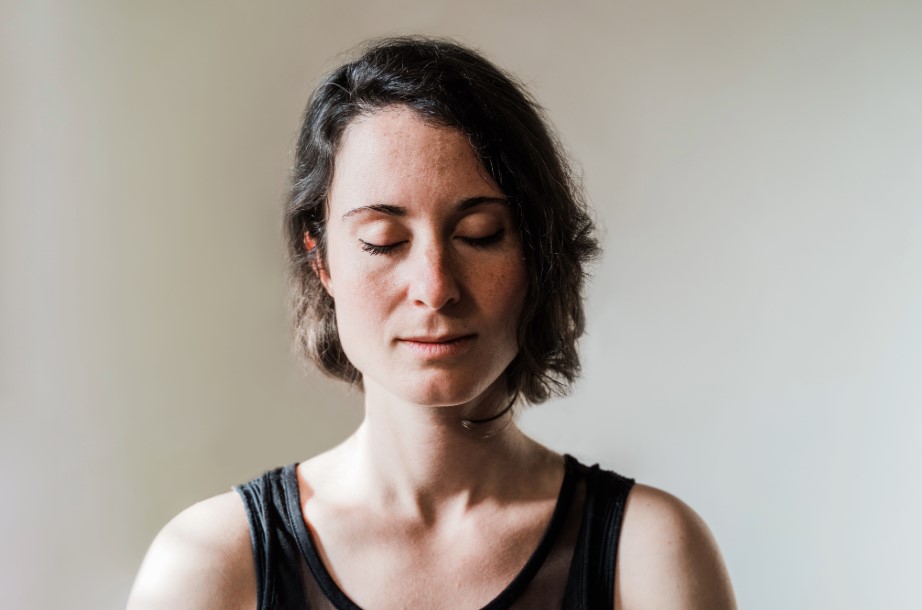
Anxiety is a natural response to stress or danger and shows up in many ways physically, mentally and emotionally.
Feeling anxious from time to time is normal but it’s important to know when anxiety becomes a problem. When worry and fear become constant and start to interfere with daily life it can become an anxiety disorder.
One of the most common is generalized anxiety disorder where people worry about many things. Early recognition of these symptoms is key to getting the right help. Monmouth Integrative Counseling Services has in-person appointments in Manasquan and Brick, New Jersey and NJ telehealth therapy options to treat anxiety disorders.
Anxiety is a Necessary and Healthy Emotion
Anxiety isn’t an emotion we want to avoid; it serves a purpose in our lives. It’s a built in alarm system that alerts us to danger and helps us prepare when we’re under stress or threat. This “fight or flight” response is a natural and protective part of our biology. When we sense danger our body releases chemicals that prepare us to either face the threat or run from it. This can cause physical symptoms like a racing heart, sweaty palms or a surge of energy.
While anxiety is a necessary emotion it’s important to know when it becomes more than just a useful tool. Conditions like panic disorder, separation anxiety disorder and post traumatic stress disorder are examples of mental disorders where anxiety can become overwhelming and interfere with daily life. In these cases, the body’s natural protective mechanisms can overreact and we can experience excessive fear or worry in nonthreatening situations. Knowing the difference between normal anxiety and when it becomes a disorder is key to our mental health.
Types of Anxiety Disorders
Knowing the types of anxiety disorders can help you recognize symptoms and get the right help from a mental health professional. Here are some common anxiety disorders:
Generalized Anxiety Disorder (GAD): This disorder involves excessive worry about many things in life, from work and health to everyday interactions. People with GAD can’t control their worries which can interfere with daily activities.
Panic Disorder: This condition is characterized by sudden and intense episodes of fear called panic attacks. These attacks can come out of nowhere and include physical symptoms like heart palpitations, shortness of breath and dizziness.

Social Anxiety Disorder: Also known as social phobia this disorder involves a fear of social situations where people worry about being judged or evaluated by others. The Anxiety and Depression Association of America says this can lead to avoidance of social events and impact quality of life.
Specific Phobias: These are intense fears of specific objects or situations, like heights, flying or animals. While many people have mild fears, specific phobias can cause severe anxiety and avoidance behaviors that affect mental health.
Obsessive-Compulsive Disorder (OCD): OCD is characterized by unwanted recurring thoughts (obsessions) that lead to repetitive behaviors (compulsions). These compulsions are often done to reduce the anxiety caused by the obsessions but can take over daily life.
Post-Traumatic Stress Disorder (PTSD): PTSD happens after a traumatic event. It can cause intense anxiety, flashbacks and nightmares. See a mental health professional for treatment to manage these symptoms and overall well being.
Psychotherapy Treatments for Anxiety Disorders
Effective psychotherapy treatments offer hope for anxiety disorders. Here are some of the most effective therapies:
Cognitive Behavioral Therapy (CBT)
CBT is a type of talk therapy that helps you identify and change the negative thought patterns that contribute to anxiety. By focusing on these patterns you learn practical skills to cope with anxiety provoking situations. Cognitive Behavioral Therapy CBT helps you challenge irrational fears and think more healthily.
Eye Movement Desensitization and Reprocessing (EMDR)
EMDR is good for anxiety related to trauma. It involves reprocessing distressing memories through bilateral stimulation like eye movements to reduce the emotional charge. This helps you confront and integrate the traumatic experience and reduce anxiety symptoms over time.
Mindfulness-Based Therapy
This therapy incorporates mindfulness practices into therapy, where clients are encouraged to focus on the present moment. By using relaxation techniques, you learn to manage anxiety by observing your thoughts without judgment. Mindfulness reduces stress and helps you feel calm.
Exposure Therapy
Exposure therapy gradually introduces you to your fears in a safe environment. This allows you to confront your anxieties and reduce their power over time.
It’s good for specific phobias and social anxiety disorder, helps you build resilience to your fears.

Acceptance and Commitment Therapy (ACT)
ACT teaches you to accept anxious feelings rather than avoid them. By focusing on mindfulness and acceptance you commit to actions that are in line with your values and goals even when you’re anxious. This therapy helps you develop psychological flexibility and personal growth.
Lifestyle changes can Make psychotherapy for anxiety disorders More Effective
Here are some changes that can help:
Regular Physical Activity: Exercise regularly and release endorphins, the body’s natural mood lifters. Exercise not only boosts mood but also reduces anxiety symptoms. Whether it’s a walk, run or yoga, moving your body is a great addition to therapies like cognitive behavioral therapy.
Healthy Diet: Eat a balanced diet to regulate your energy and manage anxiety symptoms. Foods rich in nutrients support overall brain health and can stabilize your mood. Avoid too much caffeine and sugar to prevent mood swings and anxiety spikes.
Adequate Sleep: Get a regular sleep schedule to avoid fatigue which can worsen anxiety. Good sleep hygiene is setting regular sleep times, creating a sleep conducive environment and limiting screen time before bed. Quality sleep helps your brain to process and rejuvenate.
Stress Management Techniques: Incorporate relaxation techniques like deep breathing, yoga and meditation into your daily routine to manage daily stress and reduce anxiety. These techniques give you a sense of calm and help you stay balanced which is good for people with mental health conditions as per the diagnostic and statistical manual.
Social Support: Build a strong support network with friends, family or support groups. Having people to talk to and share with can be comforting and reduce feelings of loneliness. Support from others helps you build resilience and cope with anxiety.
Our Approach to Anxiety Management
At Monmouth Integrative Counseling Services, we understand that every person’s experience with anxiety is unique. Our team of licensed therapists is dedicated to offering individualized support through a variety of effective treatments, including Cognitive Behavioral Therapy, EMDR, mindfulness-based therapy, and more. We also provide options for medication management and group therapy to enhance your treatment experience.
Taking the first step to seek help for anxiety can feel challenging, but know that you don’t have to face it alone. Our offices in Manasquan and Brick, NJ are here for in-person appointments, and we offer convenient Telehealth options for residents throughout New Jersey. Whether you’re managing generalized anxiety, social anxiety, or symptoms related to trauma, our compassionate team is ready to help you find relief and reclaim your life.
Contact us today to learn more about how Monmouth Integrative Counseling Services can support you on your journey to emotional well-being.
